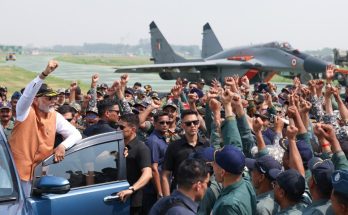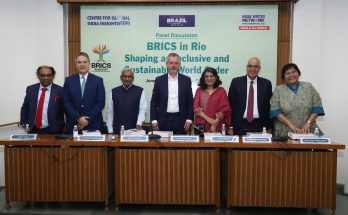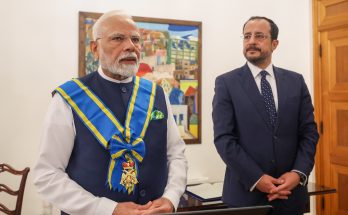
Amid rising tensions of a nuclear threat from North Korea and the risks around the Iran nuclear deal, world leaders and peace activists have hailed the Nobel Peace Prize for the Geneva-based anti-nuclear advocacy group International Campaign to Abolish Nuclear Weapons (ICAN).The recognition follows the organisation’s decade long work which led to the recent signing of the United Nations Treaty on the Prohibition of Nuclear Weapons.
“The organisation is receiving the award for its work to draw attention to the catastrophic humanitarian consequences of any use of nuclear weapons and for its ground-breaking efforts to achieve a treaty-based prohibition of such weapons,” the Norwegian Nobel Committee said in a statement. “Through binding international agreements, the international community has previously adopted prohibitions against land mines, cluster munitions and biological and chemical weapons. Nuclear weapons are even more destructive, but have not yet been made the object of a similar international legal prohibition,” said Nobel Committee chairman Berit Reiss-Andersen announcing the prize. The UN treaty adopted in July has the support of 122 countries, which also includes Iran. However, major nuclear powers like the United States and Russia have stayed away from it. The award for ICAN has elicited accolades from around the world. UN Secretary General Antonio Guterres was among the first ones to congratulate the Geneva based group. “Now more than ever we need a world without nuclear weapons,” he tweeted.
Federica Mogherini, the European Union’s Foreign Affairs and Security Policy chief, who had played a key role in the Iran nuclear deal negotiations said in a congratulatory tweet to ICAN, “We share a strong commitment to achieving the objective of a world free from nuclear weapons.”
United Kingdom Green Party leader Caroline Lucas tweeted reiterating her party’s stance against nuclear weapons saying UK must back the ban now. “Scandal that UK Government has been actively working against these Nobel Prize winners.”
Several previous Nobel laureates like Dalai Lama and Desmond Tutu and activists like Jody Williams and Martin Sheen have extended their support to ICAN’s cause for a peaceful world free of weapons of mass destruction. The Geneva-based ICAN, which was selected from among 318 candidates for the Nobel, is a group of several non-governmental organizations from around 100 countries. 97 Nobel Peace Prizes have been awarded since its inception in 1901 of which several were for work related to nuclear disarmament. Prominent among them are organisations like International Physicians for the Prevention of Nuclear War and International Atomic Energy Agency that were awarded the Nobel for Peace in 1985 and 2005, respectively.
ICAN will be receiving a gold medal and a cheque of nine million Swedish krona ($1.1 million) at a ceremony in Oslo on December 10, on the death anniversary of Alfred Nobel.
Author Profile
- India Writes Network (www.indiawrites.org) is an emerging think tank and a media-publishing company focused on international affairs & the India Story. Centre for Global India Insights is the research arm of India Writes Network. To subscribe to India and the World, write to editor@indiawrites.org. A venture of TGII Media Private Limited, a leading media, publishing and consultancy company, IWN has carved a niche for balanced and exhaustive reporting and analysis of international affairs. Eminent personalities, politicians, diplomats, authors, strategy gurus and news-makers have contributed to India Writes Network, as also “India and the World,” a magazine focused on global affairs.
Latest entries
 India and the WorldJune 26, 2025Operation Sindoor: India Sheds Restraint, Rediscovers Utility of Force
India and the WorldJune 26, 2025Operation Sindoor: India Sheds Restraint, Rediscovers Utility of Force India and the WorldJune 23, 2025BRICS summit in Rio to focus on Global South, local currency trade
India and the WorldJune 23, 2025BRICS summit in Rio to focus on Global South, local currency trade Africa InsightsJune 11, 2025New Opportunities in India-Japan Cooperation in Africa
Africa InsightsJune 11, 2025New Opportunities in India-Japan Cooperation in Africa India and the WorldMay 23, 2025Post-Operation Sindoor, India reminds Turkey, China of concerns and sensitivities
India and the WorldMay 23, 2025Post-Operation Sindoor, India reminds Turkey, China of concerns and sensitivities







